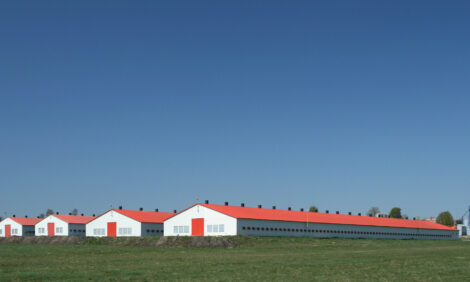



Poultry Farmers Save by Switching to Renewable Heating
UK - Farmers stand to save up to 45 per cent off heating bills by using renewable sources of heating in poultry houses, writes Silvio Spiess, CEO of Innasol.Within the UK’s burgeoning energy industry, the renewable heating sector is swiftly finding its feet as a reliable and affordable energy source for business owners, not least thanks to newly introduced government Renewable Heat Incentive (RHI) scheme.
The benefits of switching to renewable heat are numerous. According to the Renewable Heat Report, switching can cut energy bills by up to 45 per cent.
When we add the RHI financial incentives on top of that, moving over to renewable heat can be very financially beneficial.
Switching has environmental benefits too: as renewable heat uses sustainable sourced wood, it is a carbon neutral energy source which helps to cut the UK’s carbon emissions.
Why heating?
As is shown in the Renewable Heat Report, heating constitutes 55 per cent of the average business’s energy consumption, and so should be the first port of call when aiming to reduce energy bills.
While the extent may vary, biomass is an obvious choice for those raising poultry.
Poultry farms depend on a large and constant heat source - biomass can easily satisfy this need and furthermore, is particularly well suited to the rural farming sector because of the storage space available which is required both for the boiler and for the wood fuel.
So how does it work?
Those participating in the scheme simply have to install a renewable heating system and in return will receive quarterly payments from Ofgem depending on the system’s heating output.
The RHI payments will be paid out for up to 20 years, and the payback period tends to be less than five years, making it a strong investment.
Case studies
One notable example can be taken from a farm in Herefordshire, England. Here, the owner switched to an ETA 90Kw HACK wood chip biomass boiler and as a result saved over £4,100 per year on fuel alone, as well as making more than £10,200 annually in quarterly RHI revenue.
The payback period in this case was only four years and the business owner’s total net return was a staggering £600,000. Seeing figures like these, it is obvious why biomass is now in high demand across the farming community.
Renewable heating may be little known compared to the more mainstream renewable energies such as solar and wind energy, but it is gathering momentum quickly thanks to the significant savings that it offers without compromising on quality or convenience. Innasol, responsible for the UK’s largest renewable heating network, is leading the pack with its expert partner network of 200.








